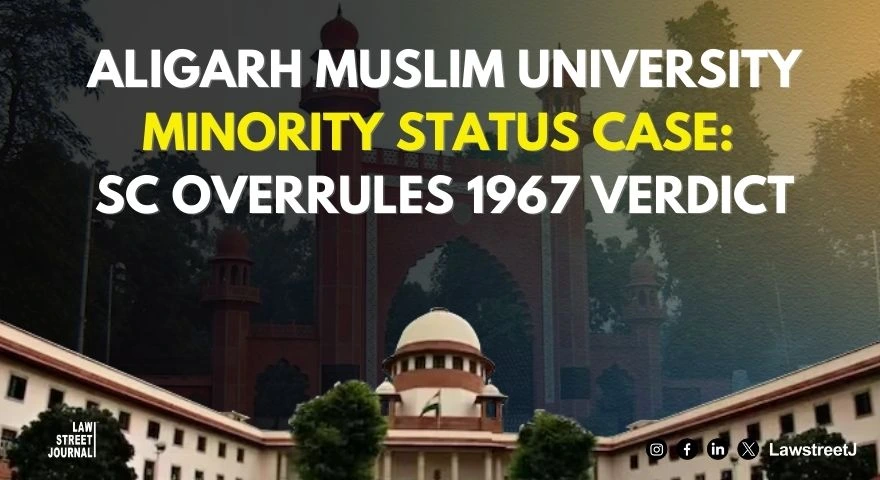NEW DELHI: The Supreme Court on Friday by a majority view overruled the 1967 judgement in Azeez Basha case which constituted the basis for depriving Aligarh Muslim University of its minority character.
Supreme Court Rules Minority Status Unaffected by Statute-Based Establishment
A seven-judge bench led by Chief Justice of India D Y Chandrachud
held that a minority institution can be established by the minority and may not necessarily be administered by the minority members.
The CJI who authored the majority view, also held the minority character of the institute is not lost due to a statute by which it is created.
The bench said an institution cannot be denied minority status just because it has been established by a parliamentary legislation. Various other factors surrounding such establishment and other aspects ought to be taken into account, the court added.
The court said it is also not necessary to prove that the administration of a minority institution lies with such minority group. The test is whether the institution exudes minority character and operates in the interest of minority.
It also said minority institutions may wish to emphasise secular education and for that minority members are not needed in administration.
The majority judgment was pronounced by the CJI on behalf of himself and Justices Sanjiv Khanna, J B Pardiwala and Manoj Misra.
Justices Surya Kant, and Dipankar Datta gave their own dissenting judgments. Justice Satish Chandra Sharma wrote his own opinion in the matter.
Aligarh Muslim University Minority Status Review Sent to Lower Bench for Final Decision
After the pronouncement of judgment, the court referred the matter to a three judge bench to decide the issue arising out of 2006 Allahabad High Court's judgement which denuded the Aligarh Muslim University of its minority character.
The bench said the issue of AMU minority status is now left to be decided by a regular bench for the factual determination whether it was 'established' by a minority.
In 1967, a five-judge constitution bench in S Azeez Basha versus Union of India case held that since AMU was a central university, it cannot be considered a minority institution.
In 1981, its minority status was restored when Parliament passed the AMU (Amendment) Act in 1981. In January 2006, the Allahabad High Court struck down the provision of the 1981 law by which the university was accorded the minority status.
In his judgment, Justice Surya Kant said the five-judge bench in Aziz Basha case had correctly decided that AMU was not a minority institution, which has attained finality, and that there is no need to reopen the inquiry into the character of AMU.
He severely criticised the manner in which the case was referred by a three-judge bench to present seven-judge bench and termed it as a judicial impropriety on the part of the smaller bench and also on part of the then CJI in accepting the request.
Justice Dipankar Datta also differed with CJI's majority opinion which validated AMU reference by a two-judge bench directly to a seven-judge bench after doubting the five-judge bench verdict in Aziz Basha.
He asked if a two-judge bench tomorrow can doubt 'basic structure doctrine' propounded in Kesavananda Bharati case and refer it to 15-judge bench directly. He said the majority opinion will set a very dangerous opinion. He ruled that AMU is not a minority institution.
Justice Sharma said his opinion is neither concurring nor dissenting with the majority opinion authored by CJI Chandrachud. However, he agreed with dissents that the two-judge bench could not have referred the case directly to a seven-judge bench.















